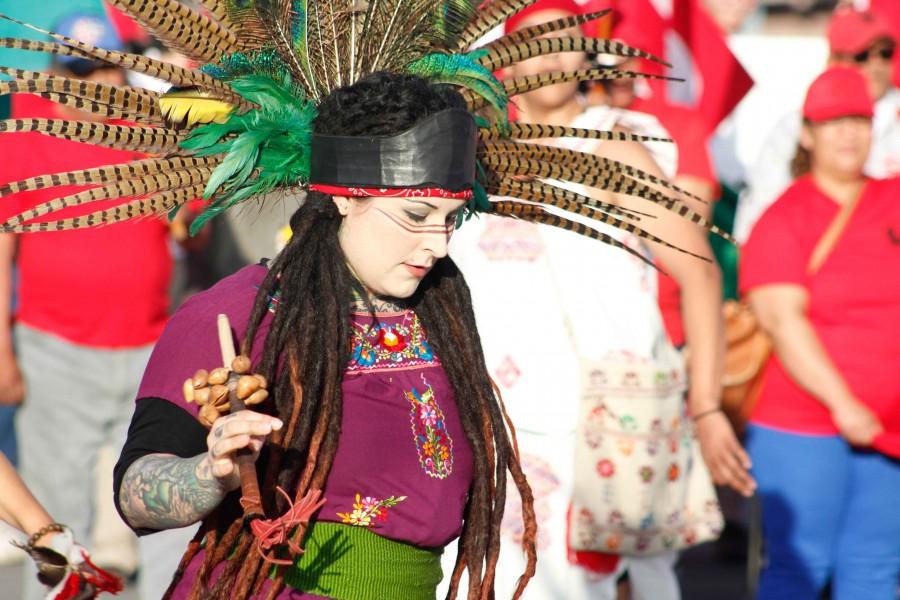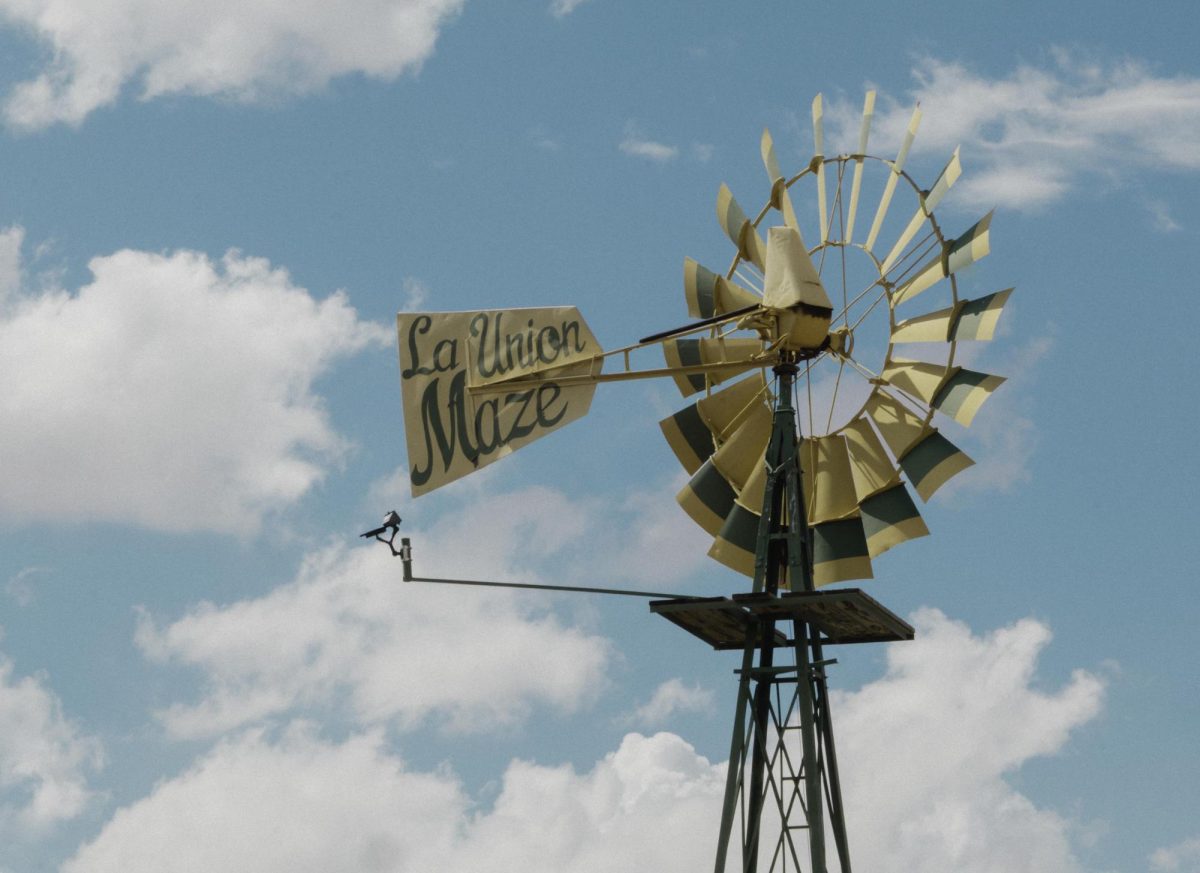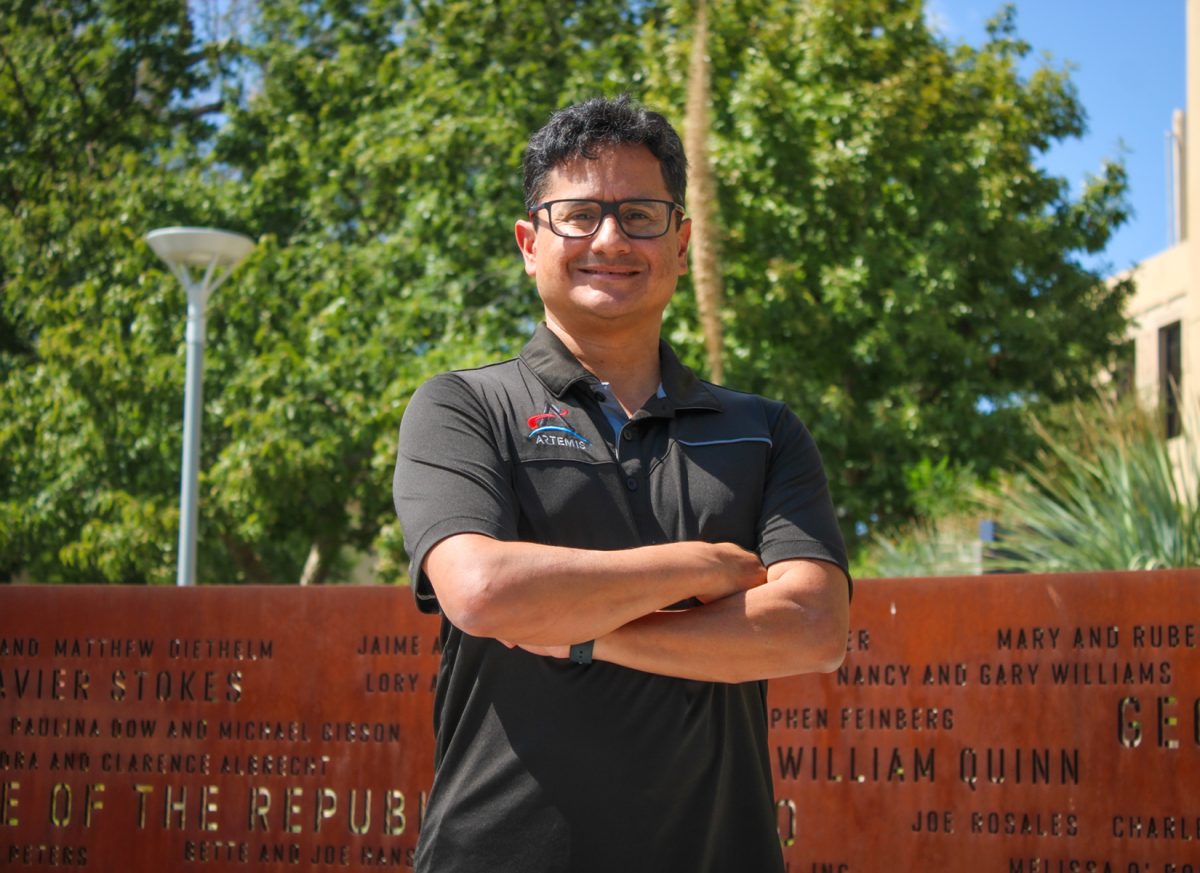On the anniversary of Cesar Chávez’s birthday in the front row at The Border FarmWorker Center sits a family dressed in bright red reminiscing about the days they worked with Cesar Chávez and commemorating his work and achievements.
“Lo conocimos cuando el hacia juntas en las casas con los campesinos… porque el soñaba con tener una unión,” (We met him when he organized meetings in the houses of farmworkers…because he dreamed about forming a union) said Silvestre Galvan, a former activist who worked alongside Cesar Chávez.
They, along with the 300 plus El Pasoans who attended the Marcha Campesina, a march meant to honor Cesar Chávez and the continued fight for farm workers’ rights, walked down Oregon, Sixth, El Paso and San Antonio streets, carrying red flags while shouting “¡Si se puede!”
“Celebramos su vida, además esta es una oportunidad para recordar que por la causa que el lucho, por la justicia para los trabajadores agrícolas, todavía no se a materializado…de que ay que seguir buscando esa justicia,” (We celebrate his life, this is also an opportunity to remember that what he fought here– justice for farm workers–has not materialized.. that we have to keep looking for that justice) said Carlos Marentes, executive director of the The Border FarmworkerCenter, Sin Fronteras.
Galvan said he met Chávez in 1973 as a grape picker, after he became a member of the committee that oversaw the ranch he was working at, The committee was part of a union Chávez had made.
For three years they had worked under wage contracts organized by the union, until they expired and the ranch owners did not want to sign their contracts.
“Entonces nos subimos a la huelga con Cesar Chávez, y estuvimos tres años en huelga y luego el boicoteo de uvas,” (We joined the strike with Cesar Chávez for three years and later the grape boycott) Galvan said.
But the fight for farm worker rights has not ended with the death of Chávez, and continues to this day.
Farm workers are excluded from the National Labor Relations Act, which prohibits employers from firing workers who join, organize or support a labor union. They are also excluded from the Fair Labor Standards Act, which guarantees a minimum wage and obligates employees to pay overtime, for anyone who performs more than 40 hours of work. Because FLSA does not apply to farm workers, many live below the poverty line.
The most notable legislation that protects farm workers is the Agricultural Workers Protection Act, which requires employers who provider housing to farm workers to meet federal guidelines, as well as with vehicles used to transport workers.
“La razón por la que yo fui a la marcha no fue solamente para celebrar los esfuerzos de Cesar Chávez…si no también fue por la mano de obra campesina que trabaja por el consumo tuyo y el mío, y gracias a ellos el mundo da vueltas,” (The reason I went to the march was not only to celebrate Cesar Chávez…but also because of the work of farm workers, who work for our consumption, and thanks to them the world spins) said Gabriela Saldaña, senior anthropology major.
Marentes said that in the border region, which includes the northern-southern part of New Mexico, El Paso and Hudsbeth county, farm workers make a yearly income of $6,700, less than half of the federally defined poverty income guideline.
“Nosotros no lo vemos en la ciudad…vemos la comida, no la comemos, y no sabemos que ay atrás de esa comida… Queremos hacer que la gente empiece a ver, empiece a entender que ay una realidad de opresión y explotación,” (We don’t see it in the city… we see the food, we eat it, and we don’t know what’s behind it… We want people to see, to understand that there’s a reality of oppression and explotation) Marentes said.
California is the only state that has passed legislation protecting farm worker rights to unionize, collective bargain and organize themselves.
If you wish to know more about the El Paso Farm Workers Center, it is located at 201 E. 9th Ave. or call (915) 532-0921.
Maria Esquinca may be reached at [email protected].









